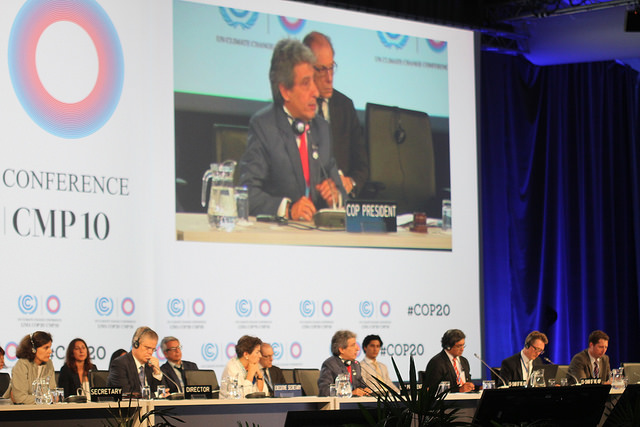Climate Action Outside the Negotiations Not Reflected Inside the Negotiations
“Not enough was done by countries who can afford to wait. The leaders of countries whose people are suffering now, who are most at risk and have least resources to mobilise for protection compromised the most. Because they can’t afford to wait – they are negotiating for lives.
Governments leave COP 20 in Lima having made just enough progress to keep the multilateral process alive, but not enough progress to give confidence that the world is ready to adopt an equitable and ambitious, legally binding climate agreement in Paris next year. We must wake up to the fact that we now have less than a year to galvanise global public support for climate solutions that are not only possible but desirable.
Climate solutions must create a pathway to sustainable development for poor and vulnerable people, who are the majority of the world’s population and who are most at risk from climate impacts. Let us be clear. Even in a 1.5°C or 2°C warmer world the impacts of climate change on vulnerable people will be significant. That is why the governments of vulnerable countries call for adaptation and loss and damage to be addressed alongside mitigation in global decision making. This is not an unreasonable position.
If we urgently and decisively put the rights of vulnerable people, including women, at the centre of our climate work we can make a breakthrough. As Professor John Knox, UN Independent Expert on Human Rights and the Environment reminded us earlier this week, “States do not leave behind their human rights commitments when they negotiate a climate agreement.”
As we reflect on the outcomes of the Lima COP we are reminded that climate change confronts us with the reality of our interdependence, of our common humanity. No country alone can protect its citizens from the impacts of dangerous climate change. This is why all countries and citizens must act to the maximum of their capabilities, motivated by decency, generosity and solidarity but also by enlightened and collective self-interest for a better future.
In 2015 world leaders need to negotiate with this in mind and find ways to move closer to each other and to support each other to accelerate the transition to a more equitable, resilient and carbon neutral world.
We have the knowledge and the means to act. The generations that came before us didn’t know that their actions were causing climate change. The generations who come after us risk inheriting an unsolvable problem. We are the generation that can make the difference. We took small steps in Lima. We need to take big steps in 2015.”


